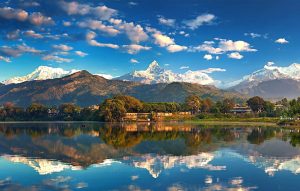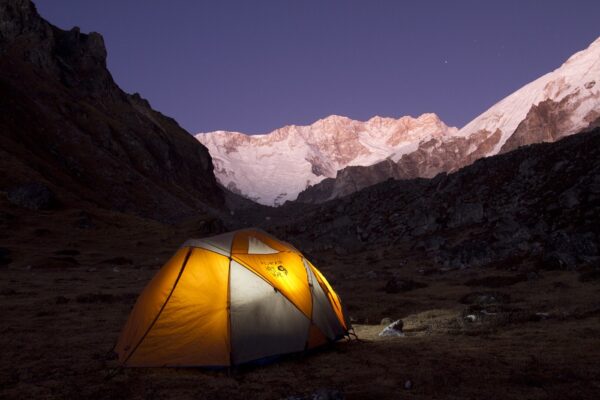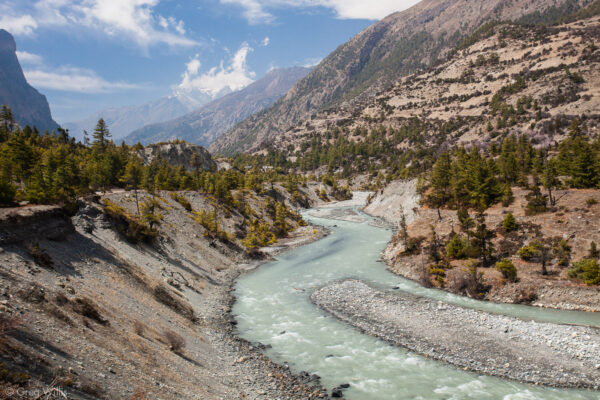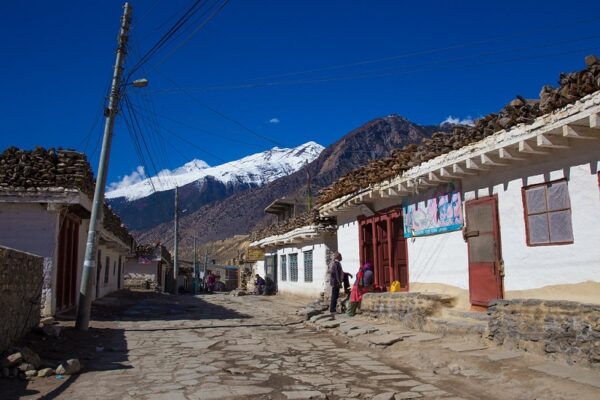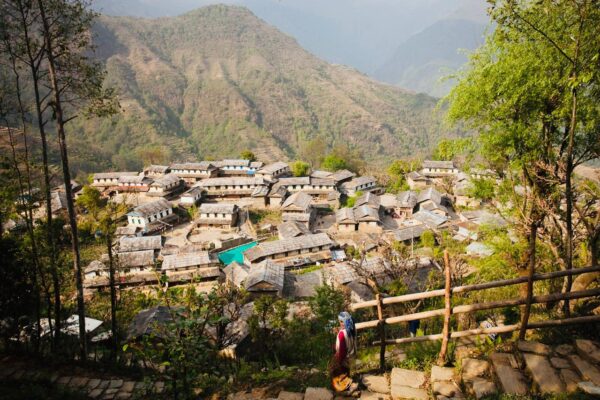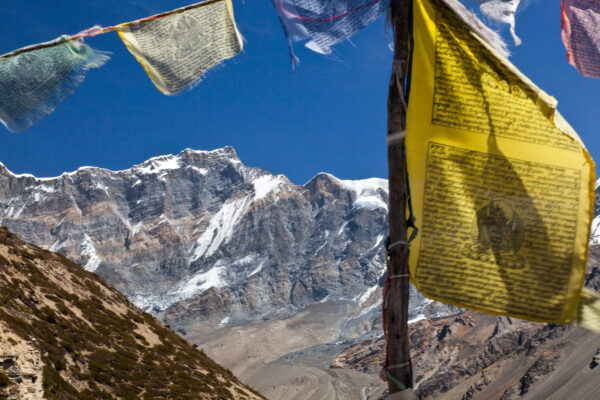-
trip code
TGN-305
- difficulty
Moderate
-
Trip Style
Group
-
Start in
Kathmandu
-
end in
Kathmandu
-
group size
2 - 14 Pax
-
max altitude
4,130
-
Accommodation
Tea House
-
Best Season
March, April, May, September, October, November,
Overview
Table of Contents
ToggleAnnapurna Sanctuary Trek A Gateway to the Annapurna Massif
The Annapurna Sanctuary Trek takes you into the heart of the Annapurna mountain range. This trek offers spectacular views, rich culture, and a chance to experience the unique environment of the Annapurna Conservation Area. Trekkers follow well-established trails that wind through forests, alpine meadows, and traditional villages.
Why Choose the Annapurna Sanctuary Trek?
This trek suits both beginners and experienced hikers. You will enjoy stunning mountain panoramas, including views of Annapurna South, Hiunchuli, and Machapuchare. Additionally, the trail leads to the Annapurna Base Camp (ABC), a natural amphitheater surrounded by peaks.
Unlike busier routes, the sanctuary trail offers a peaceful atmosphere. Moreover, you will experience the warm hospitality of the local Gurung and Magar communities.
Trekking Route and Highlights
The trek starts from Nayapul and passes through villages like Ghandruk and Chomrong. You will walk through rhododendron forests and terraced fields. Furthermore, the trail climbs steadily to Machapuchare Base Camp, offering breathtaking views along the way.
After reaching Annapurna Base Camp, you can rest while soaking in the spectacular mountain scenery. Then, you descend following the same trail back to Nayapul.
Best Seasons and Preparation Tips
The ideal trekking seasons are spring (March to May) and autumn (September to November). During these months, you will experience clear skies and moderate temperatures.
Make sure to pack warm clothes, sturdy boots, and rain gear. Also, carry a water purification method and basic first aid supplies. Stay hydrated and pace yourself to avoid altitude sickness.
What to Expect Along the Way
Throughout the trek, you will see diverse flora and fauna. Monkeys, pheasants, and even the occasional snow leopard inhabit this region. Local teahouses provide comfortable resting spots and opportunities to try traditional Nepali food.
If you want to explore more in Nepal, check out our detailed guide on the Everest Base Camp Trek.
This trek combines natural beauty, cultural richness, and physical challenge. It promises a memorable experience for all adventurers who visit the Annapurna region.
Trip highlights
- Traditional Gurung and Magar villages add to your experience of local and traditional culture.
- Small chortens and monasteries along the trail add a layer of spirituality to your journey.
- Annapurna Conservation Area. It is the largest Protected Area in Nepal. It covers an area of 7,629 sq. km. and is home to over 100,000 residents of different cultural and linguistic groups. ACAP is rich in biodiversity and is a treasure house for 1,226 species of flowering plants, 105 mammals, 518 birds, 40 reptiles and 23 amphibians.
- A chance to get a glimpse of exotic and elusive animals like the Himalayan black bear, Himalayan Thars, the barking deer, Ghorals, the blue sheep, Musk deer, Red Pandas and Snow leopards are some that occupy the woodlands.
- Popular Ghandruk and Chhomrong village.
- Jhinu natural hot springs where you can get a well earned slumber after a successful and demanding trek.
- Himchuli, Annapurna South, Barahi Shikhar, Annapurna I, Glacier Dom, Gangapurna, Annapurna III and Machhapuchhre.
itinerary
- day 01
Arrival in Kathmandu
- Arrive at Tribhuvan International Airport in Kathmandu.
- Nepal Tour Guide team will greet you and drop you at your hotel.
- Half day visit of major world heritage sites in Kathmandu such as Royal Kathmandu Durbar Square, Pashupatinath temple, Syambhunath, and Boudhanath stupa.
- Prepping for the next day’s trek.
- Overnight stay at your hotel.
- day 02
Drive to Pokhara.
- 6-7 hrs bus ride via Prithvi Highway. It is a romantic drive through scenic route of terraced paddy fields, Trisuli and Marsyangdi Rivers, and incredible view of Ganesh Himal, Manaslu, Lamjung Himal and most of Annapurna Himalayan Range.
- The tourist coach stops for breakfast at 09:00 am
- Lunch at around 12:00 pm on the way to Pokhara.
- Explore this beautiful lake city for a vibrant nightlife.
- We will spend the night at the hotel.
- day 03
Trek to Tikhedunga (1700m) 5 hours walk.
- Half an hour drive to Phedi and we start trek to Tolka/1810m.
- The trail is steep until Dhampus and then pleasant easy walk up to Deurali.
- The trail descends steep down to Bherikharka and 30 minutes walk takes us to Tolka.
- Stay there overnight in lodge.
- day 04
Trek to Chhomrong (2100m), 6-7 hours walk.
- We walk a pretty flat trail until Landruk.
- We then descend down and trek along the river through Himalpani and cross suspension bridge over Modikhola.
- We walk 1.5 hours until we reach Chh0mrong – one of the biggest Gurung Village via Jhinu Danda located on the ridge.
- Stay overnight at lodge.
- day 05
Trek to Dovan (2630m). 6-7 hours walk.
- The track goes descends about 310 meter down through stone steps.
- The trail then crosses Chhumrong Khola on a suspension bridge and climbs up to Sinuwa at height of 2340 meter.
- Breezy walk from here through rhododendron festooned with orchids and ferns.
- Then we take a steep path down stone staircases to Bamboo.
- Lunch at Bamboo. Then walk throughout the cool forest for about an hour to Dovan at the elevation of 2630 meter.
- Stay overnight at lodge.
- day 06
Trek to Deurali (3230m) from Dovan. 5-6 Hours walk
- We have a silent jungle walk today to Himalaya from Dovan.
- The mountains here are believed to be sacred and holy.
- Stay overnight at lodge.
- day 07
Trek to ABC (Annapurna Base Camp) 4130m, walk 5-7 hrs.
- Above Deurali the valley widens and becomes less steep.
- After walking some stone staircase we reach the shrine where some travellers lost their lives in an avalanche a decade ago.
- We do not stay for long as this region is avalanche prone. We continue our trek ahead.
- As you walk further, the pristine mountain peaks can be viewed more up close.
- The trail turns to the left in the valley after Machhapuchhre Base Camp and it is a pleasant walk up ABC.
- Breathtaking views of giant Annapurna I 8091m, Annapurna South 7219m, Machhapuchhre (Mt. Fishtail) 6997m and several other wonderful peaks.
- Stay overnight at lodge.
- day 08
Trek down Bamboo (2310m), 6-7 hrs walk.
- Hot steaming breakfast with the mountain backdrop to keep our senses scintillated.
- We then trek down to Dovan or Bamboo via MBC, Deurali and Himalaya.
- We take tea and lunch break on the way.
- Stay overnight at lodge.
- day 09
Trek to Ghandruk (1940m), 5-6 hours walk
- The trail goes is relatively flat at first then descends down Kimrong Khola.
- After reaching Kimrong Khola, we hike up to Komrong Danda.
- Lunch break at Komrong Dada.
- We continue our trek to Ghandruk, a beautiful Gurung village also known as a “Gurung Heritage”. Here, we can visit Gurung museum and a monastery.
- Stay there overnight.
- day 10
Ghandruk - Pokhara
- Today is our last day of trekking.
- We descend down to Kimche.
- There we can catch the jeep to Nayapul. Or if you wish continue your hike, then it is for 3-4 hrs walk till Nayapul.
- Drive to Pokhara.
- Stay overnight in hotel.
- day 11
Drive back to Kathmandu
- After breakfast, we travel back to the capital via Prithvi Highway.
- You can let the view of terraced fields and hills pass by as you soak in your past experiences of the trek.
- After a 6-7 hour ride to Kathmandu, you can choose to explore the capital further and buy gifts and souvenirs to take back home.
Not satisfied with this itinerary?
Make your own.Price Included
- Airport Pick Up & Drop in a private Car.
- All Ground Transportation as per above itinerary.
- Accommodation on local lodges in the Trekking area.with Breakfast
- 2 night’s accommodation in Kathmandu in a 3-star category hotel with breakfast
- 2 Night accommodation in Pokhara in a 2-star category hotel with breakfast
- Experienced English Speaking Guide and a porter
- All Government local Taxes
- Annapurna conservation fees
- (TIMS)Trekkers information Management System
- 1 porter for 2 guests
- All Staff insurance.
- Kathmandu To Pokhara Tourist Bus,
Price Excluded
- Any type of personal expenses such as Alcoholic Beverage drinks,phone and Laundry.
- Tips (Not mandatory)
- Lunch and dinner during the trek
- Meals in trekking area.
- Arrangement of emergency helicopter service which will be paid by your travel insurance company.
- items not included in cost includes.
- First Aid kit
FAQ
-
What is the best time of a year to do Annapurna sanctuary trek?
For this trek spring season (March, April and May) is best time to trek. In this time, you can see the beauty of blooming flowers like rhododendron and orchids and clear panoramic view of Himalayas. Apart from this season, you can trek in other seasons too for the same adventure.
-
What are the trekking equipment’s required for this trek and where do I get them?
For trekking equipment’s, we have mentioned them below. We recommend you be equipped with these for the trekking: Day pack Duffle bag Sun glasses Towels Water bottle Washing soaps Moistening lotion Spare batteries Spare Warm clothes And most needy things like: Hiking boots, Flip-Flop slippers, wind proof jackets which will keep you warm, trekking suits, sun hat, water proof gears. These equipment’s are important for you while trekking and you will get these stuffs in trekking shops in Thamel area in Kathmandu or in lake side Pokhara. Our representatives will be happy to help you with the hiring of the materials.
-
Are the foods and water hygienically standard?
Yes, the foods and water in the trekking region are hygienical standard as our representative will take care of foods that are provided to you on the region.
-
What kinds of foods are available during Annapurna Sanctuary trek?
Typically, different kinds of ethnic foods like Dal Bhat are best served in the area. One can also get western and continental foods however the taste might not be up to the usual standards. And please inform our guide if in case you are allergic to any kinds of food.
-
How fit do I need to be to do this trek?When planning a trek in Nepal, the fitness level needed depends on the specific trek you choose. Here are some general guidelines1. Moderate Treks (e.g., Ghorepani Poon Hill) Basic fitness is usually enough. Regular walking and some cardio exercises will help.2. Challenging Treks (e.g., Annapurna Circuit) A good level of fitness is important. You should be comfortable with long days of hiking, ideally 5-8 hours a day. Training for several weeks before the hike, including hiking with a backpack, can be beneficial.3. Strenuous Treks (e.g., Everest Base Camp) Strong fitness is required. Endurance training, strength training, and acclimatization are essential. Consider doing longer hikes and elevation training if possible.Tips for Preparing Cardio Do activities like running, cycling, or swimming to build stamina. Strength Training Focus on leg strength with exercises like squats and lunges. Hiking Practice Train on similar terrain to prepare.
-
Do I need any medical insurance for this trek?
Medical insurance is highly recommended for this trek because it will be easy for you in case of any medical emergency. The trek to Himalayas is itself a challenging task so it is better to be prepared for circumstance.
-
Do I need guides and porters for this trek and how can I get them?
Trek guide is necessary for this trekking while you can choose to have a porter if you feel necessary who will carry 15 kgs of your luggage. The price of the porter is not included in our packages. You can get one in the trekking area and our guides will help you in the matter.
-
How can I pay for this trek?
You can choose to pay via credit cards, Bank transfer or IME/ Moneygram/ Western Union. For more information regarding the payment please follow our payment information.
-
What happens in-case of medical emergency during the trek?
In case of any medical emergency our guide will be there to help you. You could be transferred to any nearby health post or health clinic or you could be rescued via chartered Heli from the trekking region in case we need to. Having a travel insurance that covers the high-altitude medical insurance could be helpful in this situation.
-
Can I get the guides who speak languages other than English?
Yes, you can get the guide that speaks other language if you need one. The price however will be extra.
-
What if I cancel the trip?
For any trip cancellations clients will have to inform 30 days prior to the departure. While 15% Booking amount is fully nonrefundable any extra amount received above that shall be refunded however the expenses incurred for the transfer of the refund amount shall be charged by the company. Any trips cancelled within 30 days of the date of departure shall be fully nonrefundable.
-
How difficult is to do Annapurna Sanctuary trek?
Annapurna sanctuary trek is a moderate trek which involves 6 hrs of walk per day to reach an altitude of 4310 m so clients with altitude sickness might face the difficulties.
-
How experienced are your guides/porters for this trek?
You will be accompanied by a knowledgeable and experienced guide licensed by the Government of Nepal. Our team has the members serving more than 10 years in the industry.
-
Are there ATMs on the way of this trek?
No there are no ATMs on the way so you have to carry extra cash with you.
-
Do I have to pay extra for the mobile, camera charging, hot shower and internet use and how much is it?
Yes, you have to pay extra charge 2 to 4 Dollars for charging, camera, hot shower or internet use.
-
What are the safety measures during my trip?Below are the important safety precautions for your trek.1. Pre-Trek Training Cardio Gym exercises, strength training, and hikes to get your body used to being active. Research Knowledge of the terrain, possible weather conditions, and its hazards.2. Acclimatization Ascend Gradually Take time to acclimatize at altitudes above 2,500 meters (8,200 feet). Observe the rule: "climb high, sleep low.". Hydrate Your Body Take ample water to help your body get used to the altitude.3. Pack Essentials Medication Kit Bring a standard first-aid kit including bandages, antiseptic wipes, pain relievers, and medicine for altitude sickness. Emergency Supplies A whistle, flashlight, map, and multi-tool make up some of the items.4. Stay Informed Weather Updates Check the weather forecast frequently and be prepared for sudden changes. Know Your Limitations Understand your body's limit and never overexert yourself.5. Travel with Guide Avail the Services of a Local Guide An experienced guide can be so much helpful assistance and acquaintance with the local conditions and serve in case of an emergency.6. Emergency Procedures Plan Emergencies Understand the evacuation route and have a plan for illnesses or injuries. Communication Carry a fully charged cell or satellite phone for emergencies.7. Stick to Blazed Trails No Shortcuts On designated trails, there is less risk of getting lost or injured.8. Group Security Travel with a Buddy Always hike with partners or groups. Pay close attention to the health and well-being of all. Constantly Check In Regularly discuss each member's feelings. Be Prepared Know how to react if you come across wildlife. Store the food properly and maintain a safe distance.10. Insurance Travel Insurance Get comprehensive travel insurance that covers trekking and medical emergencies.These will really help you achieve a great trekking experience, while minimizing risks and taking safety measures for a safe adventure!
-
Do I need to tip guides and porters and how much is it?
It is not mandatary but recommended to tip the guides and porters. It is usually 10% of trip amount.
-
What is the highest altitude reached of Annapurna Sanctuary trek?
The highest altitude is 4310 m at the Annapurna Base camp.
-
How long do we walk every day during this trek?
We will walk up to 6 to 7 hrs in this trek in average every day. Throughout the trail there will be plenty of time to rest and enjoy the scenic beauties.
-
What kinds of transportation are available during Annapurna Sanctuary trek? Do you book transportation or I need to book the transportation by myself?
We will provide private vehicle for surface transportation in this trekking package. Air transportation or public buses are also available.
Review

Aristofanes Cedeno
01/01/1970
One Week in Nepal With Tour Guide
I recently spent one week in Nepal and Tour Guide Team Trek provided an extraordinary service with an itinerary suited to my needs and interests, including Kathmandu, Chitwan, and Pokhara, detailed cultural and historical explanations when visiting different sites in Kathmandu, and above all, a customer and people-oriented approach to all activities, meals, shopping, etc. Kumar Dahal was my tour guide and it was a pleasure for me to have him showing me his native Nepal. Kumar has excellent English speaking skills and he is willing to take the extra mile to help you have the best trip to this beautiful country. I recommend him and Nepal Tour Guide Team Trek wholeheartedly as the best agency to fulfill your expectations.

Adam Szucs
01/01/1970
Memorable 4 Days With Tour Guide
My wife and I had the privilege to enjoy a 4 days long private tour with tourguideinnepal.com. Everything was spot on. We had a private driver and a private tour guide for the entire trip, both extremely polite. I can 100% recommend them to others also. I also found their pricing more than fair. Kumar runs the company, he was very helpful when we put together the custom itinerary. Our tour guide was Suvash, probably the most caring guy I’ve ever met. Thanks for the lifetime experience guys!

Brad Wegner
01/01/1970
Two Nights Was Awesome
I only had two nights in Kathmandu and primarily wanted to do a chopper flight around Everest as well as see as much of Kathmandu as possible. Kumar was amazing and looked after me like family. I did a lot of research and Kumar booked the Chopper flight for me and answered any and all questions I had leading up to it. The Everest day was truly one of the best and awe inspiring days of my life. Kumar also took us to all of the must see sights in Kathmandu. He listened to our needs as well as read our body language for what we required. You must have a guide in places like Kathmandu to understand the history and not miss anything and you won’t regret using Kumar – he is the best!!

Tom And Heide
18/09/2018
AMAZING NEPAL EXPERIENCE WITH Nepal Tour Guide Team
We had the privilege exploring KTM valley with Kumar. He has a way of showing you all facets of Nepal as nobody else will. Not only does he know his country like no other, he also has a special way of connecting you with his culture , people, customs and more like a real tour guide can only do. He is a humanitarian, a good spirit, with a great sense of humor and a heart of gold, someone who CARES about his country and people. You will love the way he guides you and shows you his country. Anything from local foods, to extensive history or just small talk about politics and social issues, Kumar is happy to discuss all. He showed us a side of Nepal, we would have never experienced with a larger bus group. He customized our program to our liking, the way we wanted it, patiently answered all of our questions always friendly , attentive and genuine. We can highly recommend Kumar as your private guide. I have traveled the world extensively (please see my other reviews on tripadvisor) and know the difference between ‘just a guide’ and a true tour director who LOVES his job and connecting with people from all walks of life. Kumar is great in what he does and his personality will make you like him the day you meet. We are still friends and should we return to Nepal, there is no doubt in our minds that we will see him again, not only as our guide but also to reunite with a great friend and human being.

Two Weeks In Nepal
We came to Nepal for just under two weeks in March 2017. My husband and I decided to bring my mom for her 60th birthday as it was her lifelong dream to visit Nepal. But weren’t sure what to do while we were there! Luckily, we found Nepal Tour Guide Team, and after a few emails to Kumar, he set up the whole trip for us. Our trip was incredible, and Kumar was wonderful. From Kathmandu to Chitwan, Pokhara and back, Kumar showed us the whole country, and his knowledge was second to none. He arranged all the hotels, the car and driver, the things we did, showed us great places to eat and most importantly, provided great friendship and conversation along the way! We laughed the whole trip and had a wonderful time. The mountains were beautiful, Chitwan was amazing, and the lakeside at Pokhara was definitely my mom’s favorite part. We’re still positive we had the best tour guide and the most skilled driver in the entire country. Kumar is an incredible person and we made a lifelong friend. Even after coming home, we continue to keep in touch, chatting and making video calls. We can’t wait to go back!
Write a review
Quick enquiry
Still confused?
Talk to our expert.

Kumar Dahal
RELATED TRIPS
Dhampus Australian Camp Trek
Enjoy Dhampus Australian Camp Trek-a wonder of Mountain View along with rich cultural encounter. A beginner-friendly trek from Pokhara...
Sikles Trek
Sikles Trek in Nepal: An Unforgettable Journey Through Majestic Landscapes The Sikles Trek in Nepal offers adventurers a chance...
Annapurna Three High Pass Trek
The Annapurna Three High Passes Trek is an exciting expedition towards some of the most striking landscapes of Nepal,...
Jomsom Trek
Jomsom Trek: A Beautiful Trip Through the Himalayas The Jomsom Trek is a wonderful adventure that takes you through...
Royal Trek Days
The Royal Trek is a tantalizingly beautiful walk along the foothills of the Annapurna region, a region rich in...
Annapurna Balcony Trek Your Complete Guide to Stunning Views
The Annapurna Balcony Trek is one of those journeys that will remain etched in one's memory because it goes...


